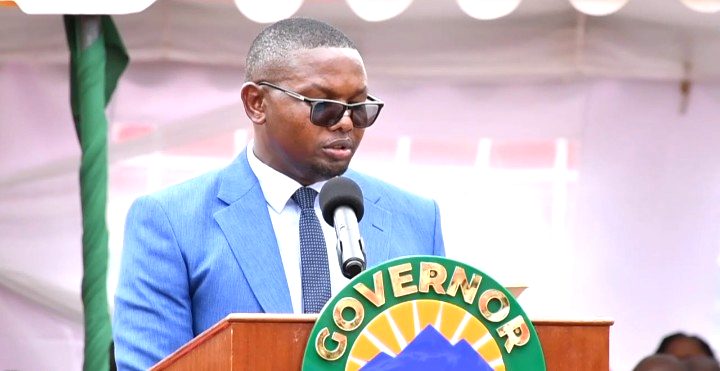The perceived negativity—whether true or not—on the attitudes of teachers and their unions towards the Chief Executive Officer (CEO) of the Teachers Service Commission (TSC) Dr Nancy Macharia in recent times, has reached an all time high within her nine year tenure and could easily be the worst in the 55-year history of the commission.
This could be attributed mainly to unpopular policy decisions such as the “delocalization” of teachers, the proposed 30 years long professional development courses for teachers, the haphazard recruitment and posting of teachers to the Junior Secondary School (JSS), and the ongoing promotion of teachers that has generated a lot of storm.
There is also the question of politicians openly dishing out TSC recruitment forms in public rallies in their constituencies outside the laid down procedures set up by the same commission. The perceived “criminalization” of membership of the Kenya National Union of Teachers (KNUT) five years ago may have been influenced externally but the CEO implemented it with unimaginable zeal.
Teachers waited with bated breath for Dr Macharia to be eased out when Dr William Ruto took over the leadership of the country and when she turned 60 years old. They did not realize that her second five year contract signed by a constitutional commission would hold sway.
The commission, by definition, consist of nine commissioners and the CEO who is their secretary. She is tenth in seniority at the commission in the pecking order of protocol. The main duties of the commissioners are to formulate policies, preside over promotion of teachers and preside over disciplinary panels of teachers facing disciplinary cases.
The CEO is then expected to implement the decisions of the commission through circulars, letters and any other acceptable mode of official communication since she is the spokesperson of the commission.
The policy decision listed above were certainly discussed and passed by the commission and the CEO authorised to implement them. When such policies become unpopular, it is incumbent upon the CEO to report back to the commissioners to re-evaluate them with the view to amending, abolishing and formulating new ones or retaining them in spite of their unpopularity.
READ ALSO:
In a similar manner in the year 2000, the World Bank and the International Monetary Fund forced the government to re-distribute teachers from overstaffed districts to understaffed ones as a condition to providing aid to Kenya. The Cabinet accepted to do so and instructed the TSC to do the needful, however unpopular it was.
The commissioners did not have a say over the decision. However, the commissioners in 2000 made a policy to recruit new teachers through the District Education Boards—for primary schools—and the Boards of Governors for secondary schools. This policy decision has stood the test of time—for 25 years.
Going forward, the stakeholders in the sector should be asking: What kind of commissioners and CEO should they be looking for beyond Dr Macharia’s tenure?
First, it is to be noted that the Cabinet Secretary, Ministry of Education, is represented in the panel that recruits the commissioners. So do the two major teacher unions. Why then would the ministry and the unions complain about the TSC when they are responsible for recruiting the commissioners?
Secondly, why wouldn’t the commissioners intervene and reverse the unpopular policy decisions when they can’t work?
Thirdly, what kind of commissioners are needed in future? The TSC has had such high profile commissioners such as Walter Amadi, Ibrahim Hussein, Dr Lydia Nzomo, Simon Soi, Joseph Kinyua, Chacha Ogwe, Jamin Kale, Joseph Ngatiari, Alexander Tubei, Beatrice Adu, Monica Kilonzo, Charles Oyoo, Daniel Rono, and Joseph Obonyo, just to mention a few.
They had performed well as principals and senior education officials and yet the teachers seem to think that it is the CEO alone who makes final decisions. They are wrong. These commissioners had the steel to ensure that the CEO adheres to the laws of the land and policies that they developed to the letter.
Fourth, what kind of CEO do we need to replace Dr Macharia when she finally exits? We have, in the last 55 years, had polished educationists and administrators in the persons of Jesse Muhoro, James Kamunge, Dancun Mwangi, Joseph Lijembe, Jackson Kang’ali, Benjamin Sogomo, James Ongwae, and Gabriel Lengoiboni as CEOs. Some performed well and even got promoted to higher offices. Others like Jackson Kang’ali retired honourably. Others were sojourners to other places.
However, all of them had the relevant educational qualifications and experiences to occupy the position.
Finally, it looks like the corporate communications department has lacked suitable leadership since the exit of Patrick Birgen and Kihumba Kamotho. All communications seem to have been left to the CEO and this does not auger well for an institution that attracts immense public scrutiny as a result of its large work force and its relevance to society.
Whatever the case, let us not have a CEO and commissioners who do not mind the welfare of teachers, but who seek to motivate them in order to offer effective service.
By Mwalimu Kibet
Get more stories from our website: Education News
To write to us or offer feedback, you can reach us at: editor@educationnews.co.ke
You can also follow our social media pages on Twitter: Education News KE and Facebook: Education News Newspaper for timely updates.
>>> Click here to stay up-to-date with trending regional stories





